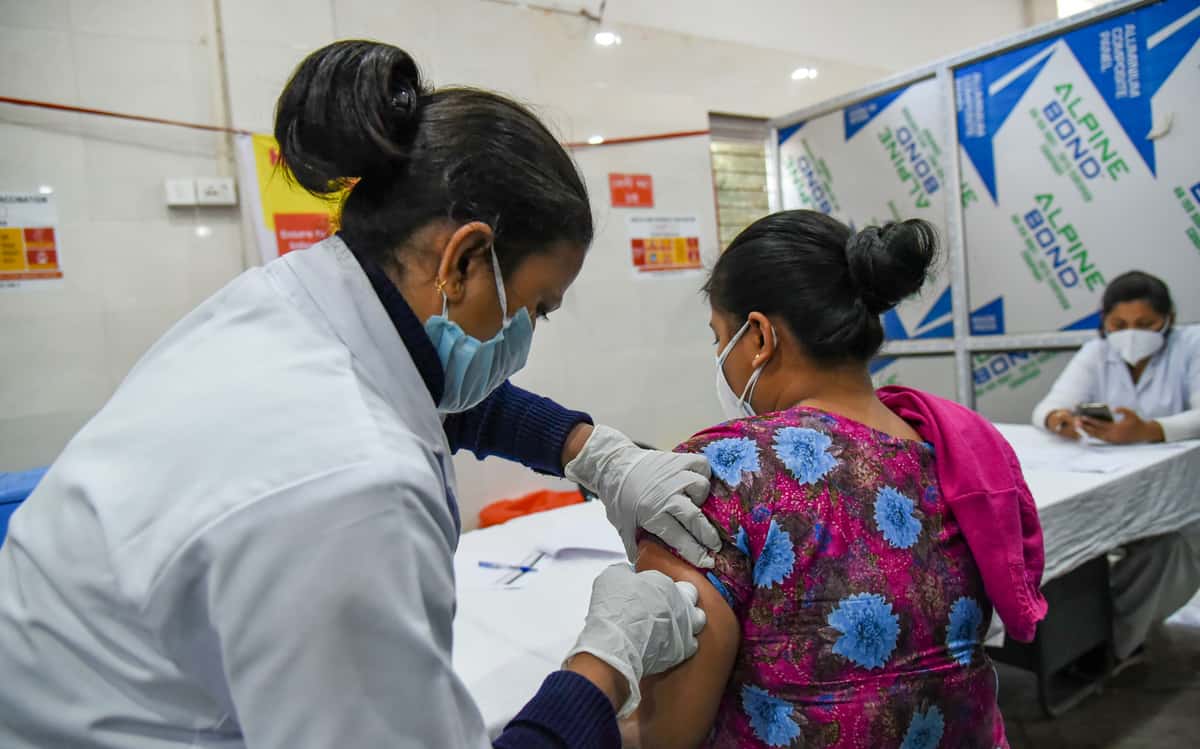Hyderabad: According to doctors, people, especially those vulnerable to the Covid-19 infection in India, should be mentally prepared to take a booster dose of Covid-19 vaccine to protect themselves from new variants and help complete the fight against the virus.
While India is on track to fully vaccinate its adult population, advanced nations like the US are preparing ground to administer a booster dose to ensure new variants of Covid-19 virus do not mutate and emerge into a major cause of worry. Doctors presume there could be newer varieties of this virus which would germinate in the society, and vulnerable groups must be prepared to take a booster dose of the vaccine to ensure the fight against the virus is complete.
“According to various studies, immunity against coronavirus developed by vaccination might wane over time. While the younger and healthy sections of the population might have a lower risk, those in the high-risk category must be well prepared to tackle the danger. Many in India took their second dose more than six months back, which is a considerable time to reassess antibodies levels among them. No vaccine manufactured to date has assured 100 per cent protection against this virus, and like in the West, Indians too must be prepared to take an additional booster dose if necessitated,” said Dr. M Sai Sudhakar, Chief Interventional Cardiologist, Gleneagles Global Hospital.
India recently achieved the remarkable feat of administering over one billion Covid-19 vaccine doses to its citizens. While nearly 80 per cent of the adult population received at least one shot, approximately 40 per cent of the population has received both doses of either Covishield or Covaxin.
This is a remarkable achievement in the fight against deadly pandemic, positive result of which can be seen in the ever-falling numbers of daily infection cases in the country.
While research into the efficacy of Covid-19 vaccines longer-term is still being carried out, there has been some suggestion that protection levels against infection begin to deteriorate after around six months, although levels of protection against serious illness from the virus decline at a slower rate. According to Britain’s ZOE Covid-19 study, the effectiveness of the Pfizer jab against infection in the months after the second dose fell from 88 per cent to 74 per cent at around the five to six-month mark. For those who received the AstraZeneca jab, protection levels against infection fell from 77 per cent to 67 per cent in the same period.
“The existing evidence suggests that the vaccines administered currently are holding up extremely well to protect against severe disease, hospitalization, or even death. Though there is no strong evidence leading to a need to provide a third dose for people who have already been vaccinated; there is nothing wrong in staying mentally prepared to take a third dose as and when the healthcare community feels a large section of the population would require a booster dose to protect against a possible spread of virus in future,” said Dr. Aarathi Bellary, HoD – Internal Medicine, SLG Hospitals.
According to Dr. Suresh Reddy, Consultant Neuro Physician, Aware Gleneagles Global Hospital, those who are seriously immunocompromised might be at a high risk of suffering more due to coronavirus infection, even after taking two doses of Covid-19 vaccine.
“Such people need extra care and constant medical attention to ensure the risk is mitigated to the best possible extent. These high-risk category or seriously immunocompromised people must surely be prepared to take a booster dose as and when the scientific and medical fraternity feel it is time,” he said
“Vaccines are being administered for the past eight months in India, and there is a popular belief that the efficacy of Covid-19 vaccination might wane after a certain period. While India is yet to vaccinate more than 20 per cent of the adult population even once, there is nothing wrong in talking about booster dose and even preparing ground for the same. The booster dose will help extend the protection gained from the first two doses and provide a longer-term protection,” concluded Dr. Aravindan Selvaraj, Co-Founder & Executive Director, Kauvery Hospital, Chennai.







